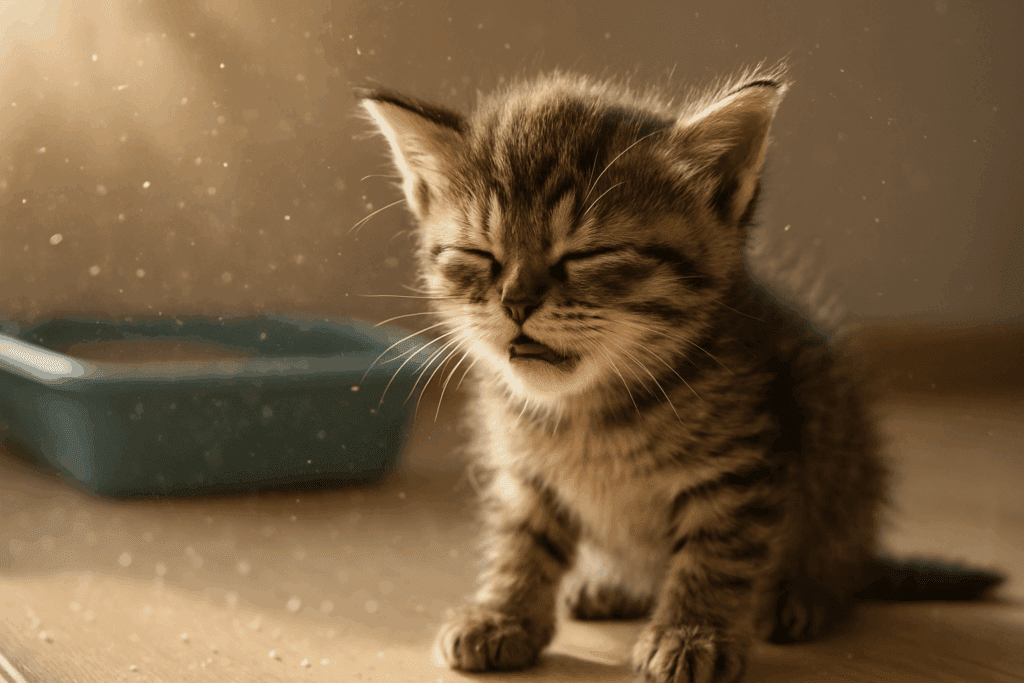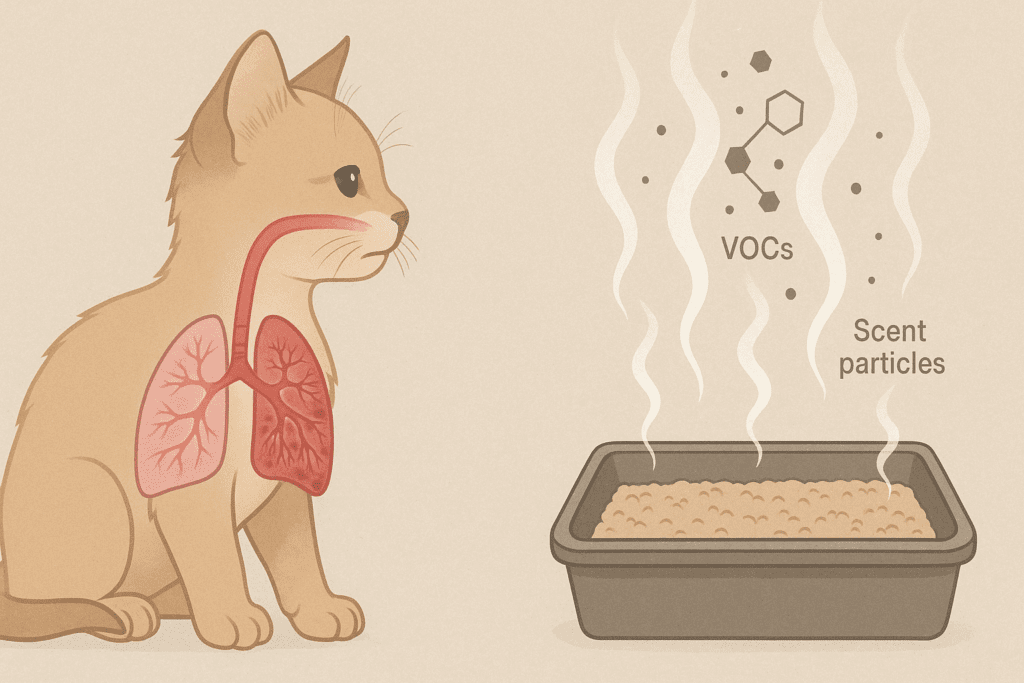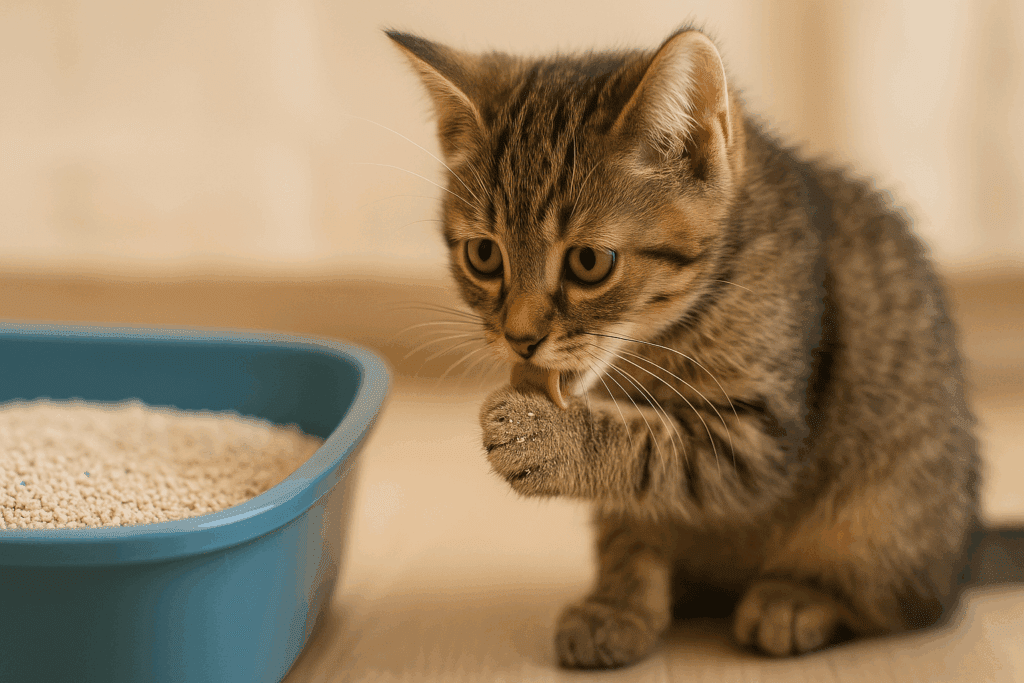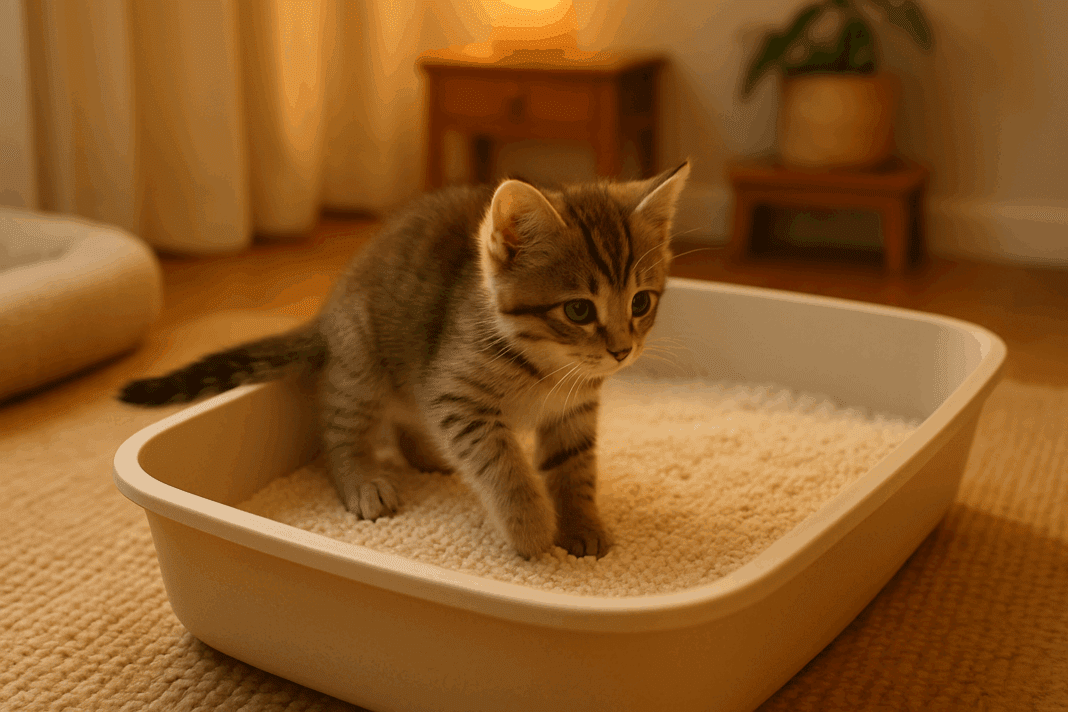Kittens are particularly vulnerable to the toxins in scented litters. Dr. Elsey outlines the risks these products pose to young cats and shares his pioneering efforts to create safe, non-toxic alternatives. In this article, readers will discover why choosing unscented litter is a vital step in safeguarding the health and development of kittens during their critical early months.
When you bring a new kitten into your home, their safety and health become top priorities. From feeding to creating a comfortable environment, ensuring the well-being of a kitten can feel like a full-time responsibility. However, one aspect of kitten care that often goes overlooked is the type of litter used in their litter box, specifically scented litter. While scented litter may seem like a practical choice for controlling odors, it poses significant risks to kittens, whose delicate systems are especially vulnerable during their early stages of development.

Why Kittens Are At Risk
Kittens are particularly sensitive to environmental factors due to their developing immune and respiratory systems. As kittens are smaller than adult cats, their bodies are still growing and maturing. This makes them more susceptible to chemicals, allergens, and other irritants commonly found in many products, including scented cat litter.
Kittens, especially during their early months, are in a crucial stage of development. Their bodies, including their respiratory systems, are fragile and sensitive to environmental irritants. According to the American Veterinary Medical Association (AVMA), kittens’ immune and respiratory systems are not fully developed until they are at least 12 weeks old. As a result, they are more susceptible to harmful substances, including chemicals, dust, and fragrances found in many commercial products, such as scented cat litter. This makes it crucial for pet owners to carefully choose litter that promotes a healthy environment, especially during the early months when kittens are at their most vulnerable.

Respiratory Irritation and Damage
One of the most significant dangers posed by scented cat litter is the potential for respiratory irritation. The chemicals used in the manufacturing of synthetic fragrances can release volatile organic compounds (VOCs) into the air. VOCs can exacerbate respiratory conditions, such as asthma, which is increasingly being recognized as a concern for kittens. According to the Everycat Health Foundation, prolonged exposure to such compounds can lead to chronic respiratory issues, including bronchitis and inflammation of the airways.
For kittens with their small lung capacity, the risk is amplified. Even minimal exposure to these chemicals can have a disproportionately larger effect on their breathing than it would for an adult cat. Symptoms of respiratory distress, such as coughing, wheezing, and labored breathing, are signs that your kitten could be having an adverse reaction to the chemicals in scented litter.
A study published in the Journal of Feline Medicine and Surgery emphasizes that cats exposed to scented litters, particularly those containing pine or cedar-based scents, showed increased symptoms of respiratory distress compared to those using unscented, natural litters.

Toxicity from Chemical Ingredients
In addition to respiratory problems, the chemical makeup of scented litter can be toxic when ingested. Kittens, known for their curious and playful nature, often come into close contact with their litter. They may accidentally ingest litter particles by grooming their paws or coat after using the litter box.
Many scented litters contain artificial fragrances, silica dust, and sodium bentonite—a substance that enables clumping but can expand inside the digestive tract if consumed. These chemicals are not only harsh on a kitten’s respiratory system but can also lead to digestive problems, including blockages and poisoning. The American Society for the Prevention of Cruelty to Animals (ASPCA) issued a warning about the potential hazards of sodium bentonite ingestion for young cats, highlighting the need for non-toxic, natural alternatives.
Natural litters, like the ones offered by Dr. Elsey’s, focus on removing harmful chemicals to ensure the safety of young cats. Dr. Elsey’s emphasizes that their products are specifically designed to cater to sensitive kittens, providing them with a safer, more natural option without compromising cleanliness or odor control.
Allergic Reactions and Skin Irritation
Another danger posed by scented litters is their potential to cause allergic reactions. Kittens are often more sensitive to allergens than adult cats because their immune systems are still developing. The chemicals used to create scented litters can trigger skin irritations, rashes, and even more serious allergic responses in some kittens.
The Cornell Feline Health Center noted an increase in allergic dermatitis cases linked to certain household products, including scented cat litter. Symptoms such as excessive scratching, redness, and inflamed skin around a kitten’s paws or belly may indicate an allergic reaction. In some severe cases, veterinarians have reported kittens developing swollen eyes and nasal passages, further exacerbating respiratory difficulties.
Dr. Elsey’s advocates for using hypoallergenic, unscented litters, particularly for young kittens or cats that are prone to allergies. Their hypoallergenic formulations are low-dust and free of artificial chemicals to prevent irritation and ensure kittens remain healthy.
Why Natural Alternatives Are Better
Given the risks associated with scented litters, it is clear that natural, unscented alternatives are a safer choice for kittens. Dr. Elsey’s has led the charge in offering solutions that cater to the needs of kittens and cats of all ages. Their products are made from natural clay and are specifically designed to be free of harmful chemicals, fragrances, and excessive dust.
Dr. Elsey’s Commitment to Cat Health
Dr. Elsey, a renowned feline veterinarian and the founder of Dr. Elsey’s, has been vocal about the dangers of dusty and scented cat litters for young cats. His research and advocacy emphasize the importance of choosing low-dust, unscented, natural alternatives to protect the respiratory health of cats, especially during their vulnerable kitten stages. Dr. Elsey’s cat litters, such as their Ultra Litter and Kitten Attract® litter, are formulated with this in mind, offering 99% dust-free and unscented solutions that prioritize kitten health.
Dr. Elsey’s commitment to promoting cat health and well-being is rooted in over 30 years of feline medical experience. The company’s website also offers a wealth of resources and guides for cat owners, emphasizing the need for natural, kitten-friendly products and providing expert tips on overall kitten care. For further information on Dr. Elsey’s and their line of cat health products, visit https://www.drelseys.com.

How To Spot Unsafe Litter
It can be challenging for pet owners to discern whether a litter is potentially harmful, especially with so many choices on the market. Here are some tips to help ensure that your kitten’s litter is safe:
– Read the Label: Always check for artificial fragrances or chemicals. Avoid products that list synthetic additives.
– Look for Dust-Free Labels: Dust is one of the primary triggers for respiratory problems. Choose litters that are labeled “dust-free.”
– Consult with Your Vet: If you’re unsure about which litter is safest for your kitten, consult your veterinarian for recommendations.
Conclusion: Protecting Your Kitten’s Health
Choosing the right litter for your kitten may seem like a small decision, but it can have significant long-term effects on their health and well-being. Scented litters, though appealing for odor control, pose substantial risks for kittens’ respiratory, digestive, and immune systems. As a responsible pet owner, selecting a safe, natural, and unscented litter is one of the most important steps you can take to protect your kitten’s health.
Dr. Elsey’s, as a leader in feline health, offers a range of products specifically designed to provide kittens with a safer, healthier environment. By using dust-free, unscented litters free of harmful chemicals, you can ensure that your new pet will have a safe, comfortable, and healthy home.
Further Reading:
1. “AAFP-AAHA: Feline Life Stage Guidelines” – Journal of Feline Medicine and Surgery
2. “What Every Kitten Owner Needs to Know” – Companion Animal Behaviour Problems: Prevention and Management of Behaviour Problems in Veterinary Practice
3. “Litter Allergy in Cats” – Wag!

